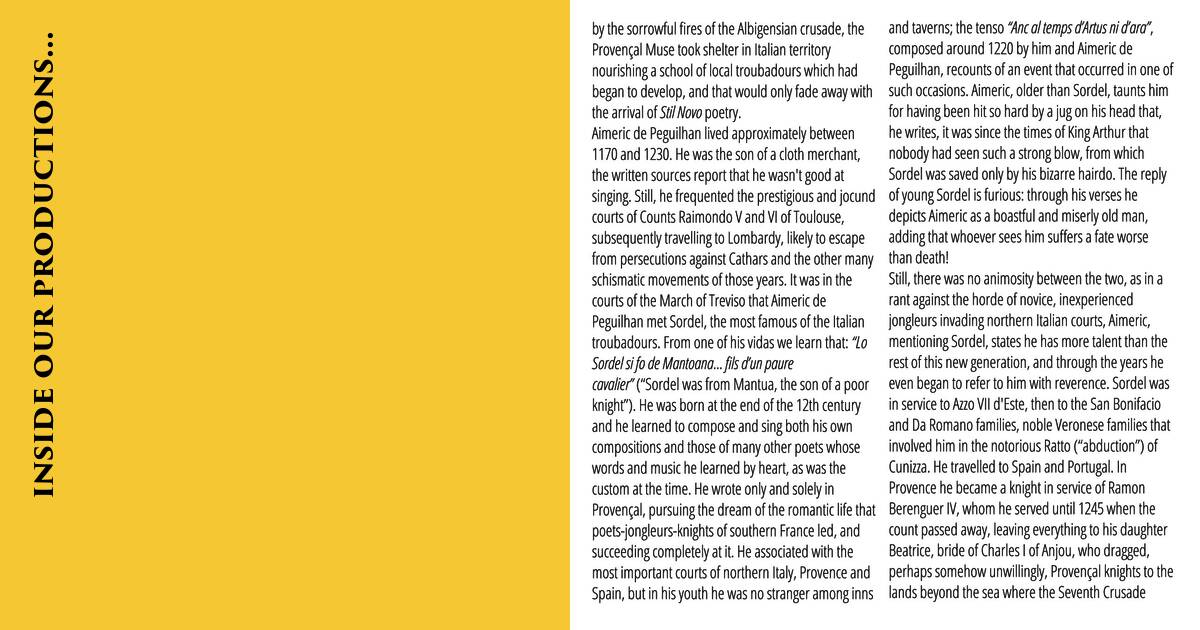
...an excerpt from a booklet from one of our publications... 0063
Second to none in poetic and chivalrous feats was Raimbaut de Vaqueiras. As a lower-class jongleur, he walked all the way from Provence around the year 1180, perhaps attracted by the fame, wealth and opulence of northern Italian courts. Before joining Boniface |, the legendary Marquis of Montferrat with whom he would eventually build a profound relationship of vassalage and friendship, Raimbaut de Vaqueiras associated with the courts of the Malaspina family in the Lunigiana, and probably while in the Tortonese region around 1185 he composed an amusing tenso: “Bella domna tant vos ai pregada’, an early and important testimony of Italian vernacular poetry. Inspired by the many jongleurs, men and women, who populated Italian squares, Raimbaut chooses the classic popular form of the exchange of jokes between a pleading man and a woman rejecting, though inserting, with singular inventiveness, the novelty of a Genoese vernacular, rhymed by the woman, in contrast to the Provencal poetic language, which is brought to exasperation by the poet: the comic effect on the audience was ensured! If the Genoese woman of “Bella domna tant vos ai pregada’ was real or fictional it's nowhere to be found, and many are the possible conjectures: common opinion credits the composition to Raimbaut only, but manuscript “I” of the 13th century attributes it to “Raimbaut de Vaqueiras e de la domna” (by Raimbaut de Vaqueiras and the woman). Anyways, Raimbaut has just come to Italy and he's a jongleur wanting to both make people laugh and begin to rise among the ranks of society. The Genoese woman, in response to his sexual innuendo to the provencals’ skill in “mounting”, tells him to go to “ser Opet”, or Obizzino Malaspina, who will certainly give him a rouncey, a poor mount that best suits the low social status of Raimbaut since he is a “jujar’. Raimbaut doesn’t just ask and plead his liege to receive the gift though, as he wants to earn it through his art, a means to shield himself against any accusations of insolence. It must be noted that, while in courts and intellectual circles the language of poetry was Provencal, in the 12th century, behind the walls of the newborn Italian communes a vernacular form of poetry started to appear, which, while still being corrupted in its vocabulary borrowed at times from Provencal and Latin, was the first sprout of what would eventually become the Italian vernacular language. Hidden beneath the immediate comical effect of the contrasto, Raimbaut mocks at these new languages, still poetically rather lean when compared to the refined musicality of the Provencal, the courtly language. So, let's leave Raimbaut de Vaqueiras as he rides towards Montferrat, while we proceed to meet another one of the great Provencal troubadours who had seen Italy in the 12th and 13th century; centuries in which, before the grim face of Simon de Montfort lit
News,Extra


